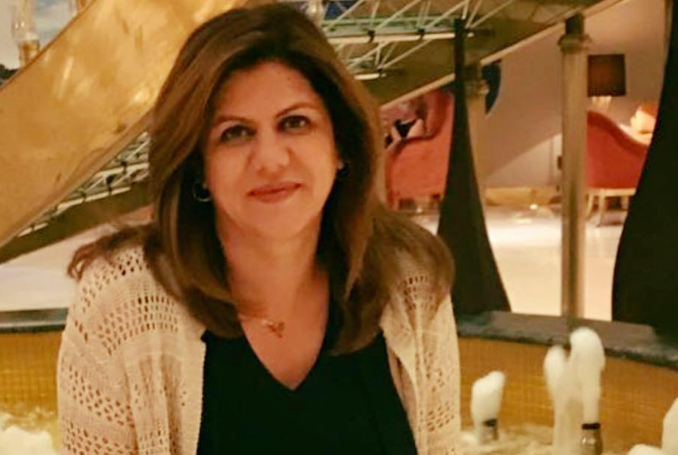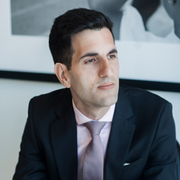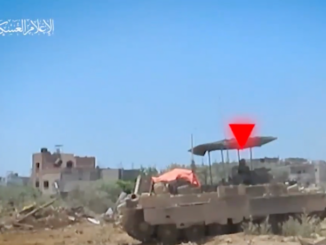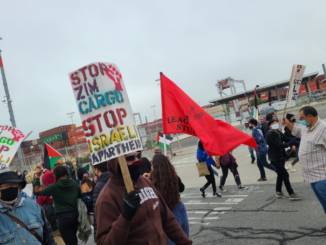
There’s a mass on October 26 in Rome, Italy. It’s to commemorate the half year since Shireen Abu Akleh was murdered by Israeli forces in Jenin.
I’ve never had the privilege or honor of knowing Shireen but for some reason, her assassination has caused me great sadness and distress. For sure this has to do with the obvious reasons that she was a completely innocent journalist, and an exemplary one at that, simply doing her job (a dangerous one) when she was killed. She was attempting as she had been for years trying to capture the truth about the illegal Israeli occupation, part of the larger task of journalists to expose the difficult realities of our world (even if it upsets power), and she unnecessarily paid for it with her life.
If you have a heart, a conscience, this should bother you. And as we’ve seen over the six months, specifically in the global outpouring of anger and sorrow at Shireen’s death, certainly a lot of people are. They never forget Shireen nor who is responsible for her death. She may have been killed in Jenin but, unlike what Israel wants, her presence transcends geography. She comes to life, as it were, in every social media post, article written about her, ceremony in her name, etc. where many remember her and express their commitment to ensuring her killers be held legally accountable.
But the sadness and distress described aren’t entirely captured or reflected by this. What I think is causing these difficult feelings is that the physical absence of Shireen now makes this world dimmer. She was a light and force for great change, specifically upending Palestinian oppression. And you know that if you had met her that you’d be a better person for it. Your life would be improved by the encounter. The sincerity and warmth I think anyone can see in Shireen, if only digitally (online photographs, videos, stories, etc.), transform people to be less selfish and more mindful of the people around them.
Hints of that I believe come through in her exceptional journalism, much of which can now be seen on an impressive YouTube channel curating her news coverage. In it she can be seen in numerous Palestinian communities, caring deeply to understand the challenging lived experience of its inhabitants. She was not afraid to meet them in their pain or suffering. Indeed she refused to turn away from the ugliness of Israeli oppression. Whatever it took she was going to make sure that the stories of Palestinians, enduring that oppression, would be broadcast. Unflinching, they are also stories that mobilize audiences to end injustice.
Many others tell stories of oppressed people, be they journalists, artists, historians and so forth. But not all of them like Shireen have the full weight of the Israeli state to contend with, including the savage violence it constantly shows those who defy it. That is why I feel drawn to Shireen. She was doing something that, in so far as self-interest is concerned, doesn’t “make sense.” Like the activists and resistance fighters her journalism highlighted, she put her life on the line to expose inhumanity.
A lot is at stake for yourself when you do this. But it may help liberate others, whose lives are routinely made miserable by power. It’s a kind of selflessness too, a virtue frankly that we seem to be losing in the West. We typically do things that “make sense”—accumulating wealth, status, privilege. Things that do not affirm our shared humanity but ultimately distance ourselves from one another.
Similar to American anarchist and revolutionary Dorothy Day, I don’t think Shireen—especially after hearing so many refer to her as a “humble” person—would ever want to be called a “saint.” And I do all I can in my thinking and speech to honor that. Still, Shireen embodied all the things that I want to emulate, lest I fail to be my brother’s keeper: courage, kindness, patience, resolve to undermine the illegal occupation of Palestine—even in the face of an Israeli state whose military might can seem insurmountable.
Likewise, Shireen recalls for me this confession by Dorothy Day:
“We know how powerless we are, all of us, against the power of wealth and government and industry and science. The powers of this world are overwhelming. Yet it is hoping against hope and believing, in spite of “unbelief,” crying by prayer and by sacrifice, daily, small, constant sacrificing of one’s own comfort and cravings—these are the things that count.”
I believe Shireen understood this and manifested it through what I can only describe as a tough (not meek) love, acting against whatever seeks to deny the humanity of others. Shireen did that through journalism that tirelessly exposed the occupation. We, internationally, can manifest the same love by joining various Palestinian solidarity efforts. Whatever specific actions we may do therein does not matter as much as the collective force we gain in working together.
That’s how we’ll eventually free Palestine and maybe be a little bit more like dear Shireen.

– Paul Salvatori is a Toronto-based journalist, community worker and artist. Much of his work on Palestine involves public education, such as through his recently created interview series, “Palestine in Perspective” (The Dark Room Podcast), where he speaks with writers, scholars and activists. He contributed this article to The Palestine Chronicle.








